Helping to ensure that your family has clean water.
Water Testing
Emergency Repair Service
Water System Upgrades
Preventative Maintenance
Water Solutions
Leak Detection

Residential Water Testing and Treatment
Complete residential water testing and treatment service to ensure your water is free of harmful bacteria and contaminants.
Water treatment services forNew Hampshire residential customers.
Water Testing
Protecting your family against water contaminants.
Water System Upgrades
Minor and major well system, water softeners, or other upgrades.
Water Solutions
Technical expertise to provide you the best value and service.
Repair Services
Scheduled well and septic system repairs.
Preventative Maintenance
Well and septic system scheduled maintenance.
Emergency Services
Service when you need us most.
Veteran Owned
9 years in the U.S. Army NG as water treatment specialist, training and implementation of water sourcing, treatment, supply and distribution systems both in country and in theater of operations.
Experienced Technicians
Residential water systems are no mystery to us! We have installed, maintained and serviced nearly all of the available water system products past and present. Over 30 years combined experience designing, building, installing and servicing water supply, water treatment and water effluent systems.
Company Values
We pride ourselves on our values- Loyalty, Duty, Respect, honesty, professionalism and integrity.
Flexible scheduling
We offer a flexible schedule to help with your water system needs when it's most convenient for you.
24/7 emergency service
Fast reliable response to your water related emergency!
Annual service reminders
Service reminders to help you stay on top of your water system.
What is an artesian well?
An artesian well means a well deriving its water from a confined aquifer in which the water level stands above the ground surface; synonymous with a flowing artesian well. Note. Wells constructed in bedrock are commonly called artesian wells, however, only about 2 percent of bedrock wells are true artesian wells.
How long do well pumps last?
There are a lot of factors to take into account but, if you have a good quality pump that is designed and installed properly the average life expectancy is about 15-17 years.
Why is my water pulsing or surging when I turn on the faucet?
This may indicate an issue with your water systems pressure tank. It is commonly called short cycling or rapid cycling. The well pump moves water into the bladder of the tank. Above the sealed bladder is a pressurized air chamber. As the pump fills the bladder it compresses the air chamber until it reaches shut off pressure and the pump shuts down. The pressurized air chamber then acts like a coiled spring pushing down on the bladder forcing water out and into the homes plumbing. When the bladder fails water moves into the air chamber filling it with water. In this scenario when the pump turns on to fill the bladder it is compressing water rather than air. Water compresses and releases pressure very quickly causing the pump to start and stop in rapid succession creating the pulsing or surging water flow in the home. This will put extreme stress on the pump and could cause failure of the pump as well.
What is the state requirement in NH for water quality testing?
If you have a private well, then water quality testing should be important to you and your family. Some contaminants in drinking water have been linked to cancer and toxicity, posing a risk to human health. Many contaminants often have no taste, odor, or color. Their presence can only be determined by laboratory testing. While there is no state requirement to have your well water tested (although there may be from your mortgage lender or town), the New Hampshire Department of Environmental Services recommends that all homeowners with private wells do so.
Why does my water smell like rotten eggs/sulfur
Groundwater can contain the chemical hydrogen sulfide gas, which smells just like rotten eggs. This can occur when water comes into contact with organic matter or with some minerals, such as pyrite. This situation mostly occurs as groundwater filters through organic material or rocks. If the odor suddenly appears and had not been a problem in the past it can be a sign of mineral reducing bacteria. These bacteria are not harmful to healthy individuals. They feed on minerals such as Iron, Manganese and sulfate and excrete Hydrogen Sulfide Gas as a byproduct. If the odor is only in the hot water it may be localized to the hot water system. It can be caused by anode rods or bacterial development in the hot water tank itself.
What is the difference between a water filter and a water softener?
A water filter removes contaminants such as sediment and ferric iron through mechanical or physical separation by way of a filter aggregate. A water softener removes contaminants such as Hardness, Ferrous Iron and Manganese through Ion Exchange. In the Ion Exchange process the treatment resin exchanges either sodium or potassium ions (depending on the type of salt used to regenerate the system) for the Hardness, Ferrous Iron and manganese minerals.




